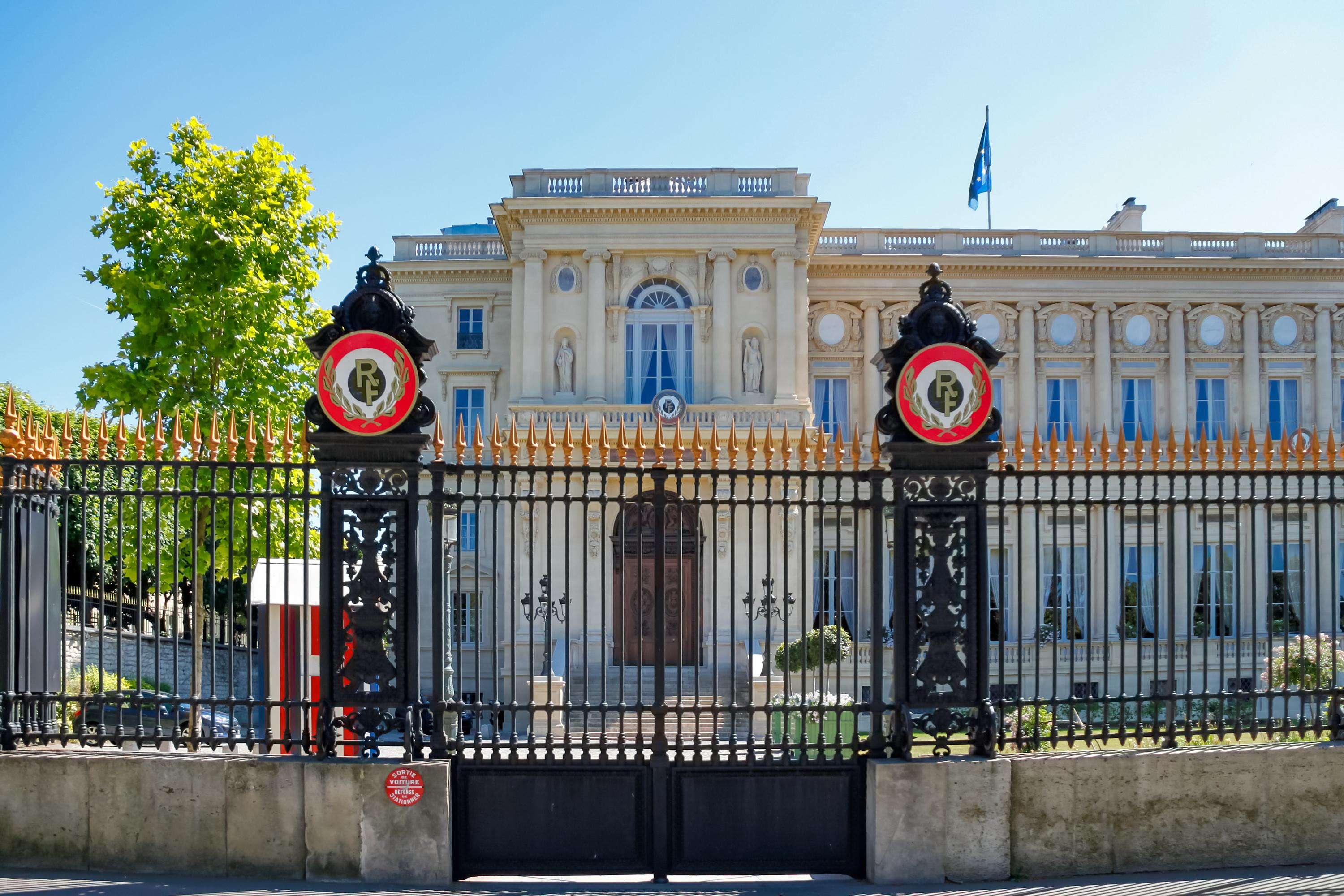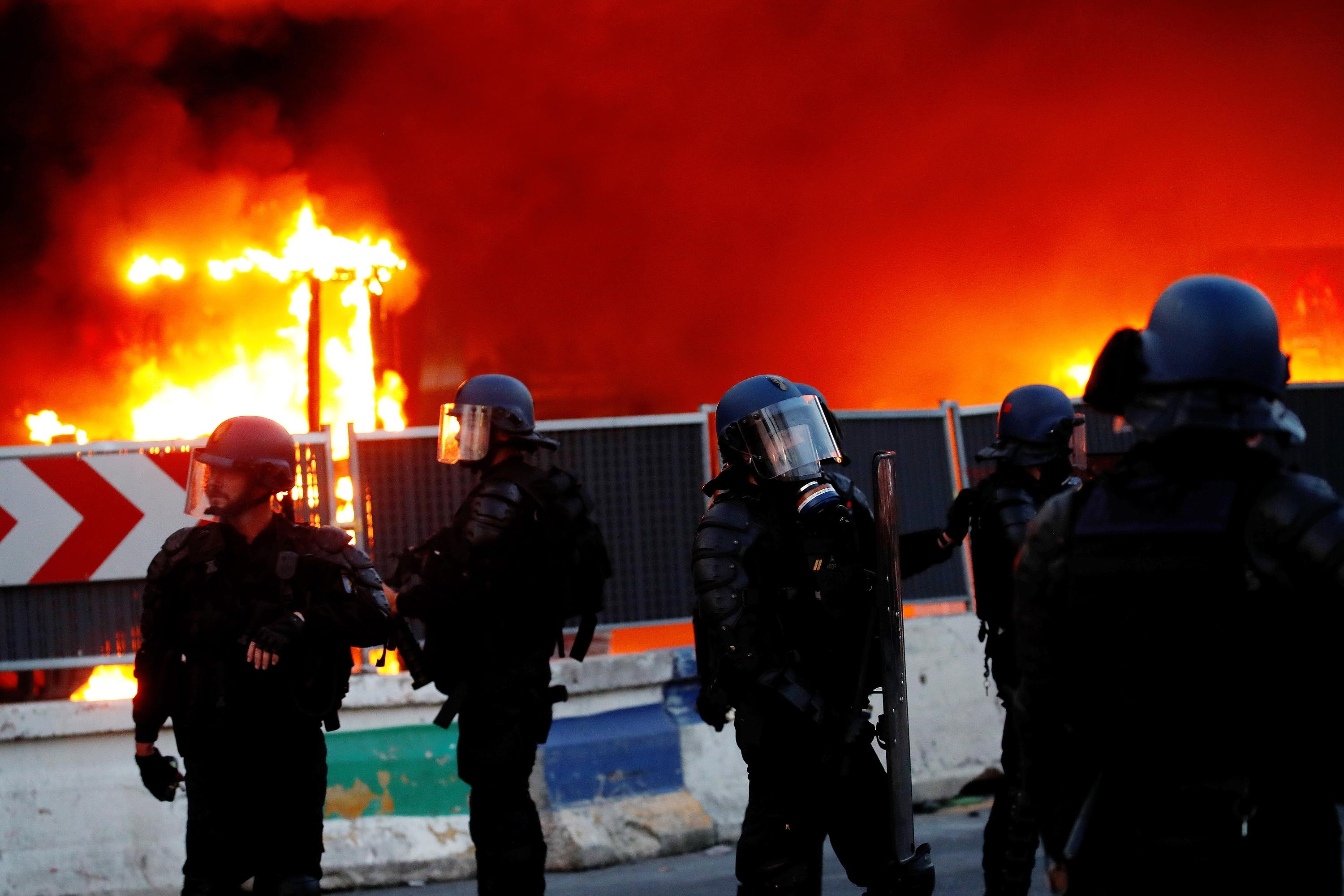There was a time when France had the second largest diplomatic network in the world, behind the United States. That time is over. In the latest ranking of world diplomacy published on Sunday by the Australian think tank The Lowy Institute, France fell to fifth position in 2023, losing two places in one year. For a long time appearing just behind the United States, Paris had already moved to third in 2019 when Beijing took first place. Turkey and Japan now occupy third and fourth places in this ranking, which is based on the number of embassies and consulates across five continents.
According to calculations by the Lowy Institute, which analyzed the diplomatic networks of 66 countries and territories in Asia, the G20 and the OECD, France has closed 18 missions since 2016 - for a total of 249 current consulates and embassies. Christian Lequesne, author of Ethnographie du Quai d'Orsay (CNRS Éditions, 2017), however, qualifies this decline, which he does not see as a sign of a decline on the international scene. Rather than embassies, Paris, he explains, closed a certain number of consular posts, mainly for budgetary reasons. “French diplomacy is based on the principle of what we call the universality of the network: we want to maintain a presence everywhere, including through small posts, called PPD (diplomatic presence posts),” explains the professor at Sciences Po In Botswana, Fiji, Moldova and even South Sudan, France relies on small representations with a minimum of staff, an ambassador, a political advisor and a cultural advisor.
During the same period 2016-2024, Ankara opened almost 30 new missions, reaching 252 representations in total. “This supports their economic dynamics. Turkey was already very present in the Middle East, and is now widely deployed in Africa,” notes Christian Lequesne. “In the construction sector in particular, the Turks compete with the Chinese in African countries and seek to deepen cultural ties, via student scholarships that they send to Turkey.”
In this data collected by the Australian think tank, China remains in the lead, with 274 diplomatic representations in the world. It is followed by the United States which has 271. Beijing has occupied this first place since 2019, a sign of the ambitions of the People's Republic which, already second on the economic power scene, is aiming for the position of new world leader for its centenary in 2049.
The strategy of these Chinese ambassadors, who have used increasingly aggressive communication since the Covid-19 period, is nicknamed by the media the “diplomacy of fighting wolves”, in reference to the film Wolf Warrior 2, the biggest Chinese box office success released in 2017. Through this powerful diplomatic network, the Chinese objective is also to isolate Taiwan. Through financing and cooperation agreements, Beijing is tearing away its allies from Taipei one by one. The latest is Nauru, a small island state in the Pacific, which decided in January to break its ties with Taiwan to resume formal relations with China. Since then, only 12 countries in the world still remain loyal to Taipei to the detriment of relations with its Chinese neighbor.

 What is chloropicrin, the chemical agent that Washington accuses Moscow of using in Ukraine?
What is chloropicrin, the chemical agent that Washington accuses Moscow of using in Ukraine? Poland, big winner of European enlargement
Poland, big winner of European enlargement In Israel, step-by-step negotiations for a ceasefire in the Gaza Strip
In Israel, step-by-step negotiations for a ceasefire in the Gaza Strip BBVA ADRs fall almost 2% on Wall Street
BBVA ADRs fall almost 2% on Wall Street Children born thanks to PMA do not have more cancers than others
Children born thanks to PMA do not have more cancers than others Breast cancer: less than one in two French women follow screening recommendations
Breast cancer: less than one in two French women follow screening recommendations “Dazzling” symptoms, 5,000 deaths per year, non-existent vaccine... What is Lassa fever, a case of which has been identified in Île-de-France?
“Dazzling” symptoms, 5,000 deaths per year, non-existent vaccine... What is Lassa fever, a case of which has been identified in Île-de-France? Sánchez cancels his agenda and considers resigning: "I need to stop and reflect"
Sánchez cancels his agenda and considers resigning: "I need to stop and reflect" “Amazon product tester”: the gendarmerie warns of this new kind of scam
“Amazon product tester”: the gendarmerie warns of this new kind of scam “Unjustified allegations”, “promotion of illicit products”… Half of the influencers controlled in 2023 caught by fraud repression
“Unjustified allegations”, “promotion of illicit products”… Half of the influencers controlled in 2023 caught by fraud repression Extension of the RER E: Gabriel Attal welcomes a “popular” ecology project
Extension of the RER E: Gabriel Attal welcomes a “popular” ecology project WeWork will close 8 of its 20 shared offices in France
WeWork will close 8 of its 20 shared offices in France “We were robbed of this dignity”: Paul Auster’s wife denounces the betrayal of a family friend
“We were robbed of this dignity”: Paul Auster’s wife denounces the betrayal of a family friend A masterclass for parents to fill in their gaps before Taylor Swift concerts
A masterclass for parents to fill in their gaps before Taylor Swift concerts Jean Reno publishes his first novel Emma on May 16
Jean Reno publishes his first novel Emma on May 16 Cannes Film Festival: Meryl Streep awarded an honorary Palme d’Or
Cannes Film Festival: Meryl Streep awarded an honorary Palme d’Or Omoda 7, another Chinese car that could be manufactured in Spain
Omoda 7, another Chinese car that could be manufactured in Spain BYD chooses CA Auto Bank as financial partner in Spain
BYD chooses CA Auto Bank as financial partner in Spain Tesla and Baidu sign key agreement to boost development of autonomous driving
Tesla and Baidu sign key agreement to boost development of autonomous driving Skoda Kodiaq 2024: a 'beast' plug-in hybrid SUV
Skoda Kodiaq 2024: a 'beast' plug-in hybrid SUV The home mortgage firm rises 3.8% in February and the average interest moderates to 3.33%
The home mortgage firm rises 3.8% in February and the average interest moderates to 3.33% This is how housing prices have changed in Spain in the last decade
This is how housing prices have changed in Spain in the last decade The home mortgage firm drops 10% in January and interest soars to 3.46%
The home mortgage firm drops 10% in January and interest soars to 3.46% The jewel of the Rocío de Nagüeles urbanization: a dream villa in Marbella
The jewel of the Rocío de Nagüeles urbanization: a dream villa in Marbella Europeans: a senior official on the National Rally list
Europeans: a senior official on the National Rally list Blockade of Sciences Po: the right denounces a “drift”, the government charges the rebels
Blockade of Sciences Po: the right denounces a “drift”, the government charges the rebels Even on a mission for NATO, the Charles-de-Gaulle remains under French control, Lecornu responds to Mélenchon
Even on a mission for NATO, the Charles-de-Gaulle remains under French control, Lecornu responds to Mélenchon “Deadly Europe”, “economic decline”, immigration… What to remember from Emmanuel Macron’s speech at the Sorbonne
“Deadly Europe”, “economic decline”, immigration… What to remember from Emmanuel Macron’s speech at the Sorbonne These French cities that will boycott the World Cup in Qatar
These French cities that will boycott the World Cup in Qatar Champions Cup: Toulouse with Flament and Kinghorn against Harlequins, Ramos replacing
Champions Cup: Toulouse with Flament and Kinghorn against Harlequins, Ramos replacing Tennis: still injured in the arm, Alcaraz withdraws from the Masters 1000 in Rome
Tennis: still injured in the arm, Alcaraz withdraws from the Masters 1000 in Rome Sailing: “Like a house that threatens to collapse”, Clarisse Crémer exhausted and in tears aboard her damaged boat
Sailing: “Like a house that threatens to collapse”, Clarisse Crémer exhausted and in tears aboard her damaged boat NBA: Patrick Beverley loses his temper and throws balls at Pacers fans
NBA: Patrick Beverley loses his temper and throws balls at Pacers fans


















